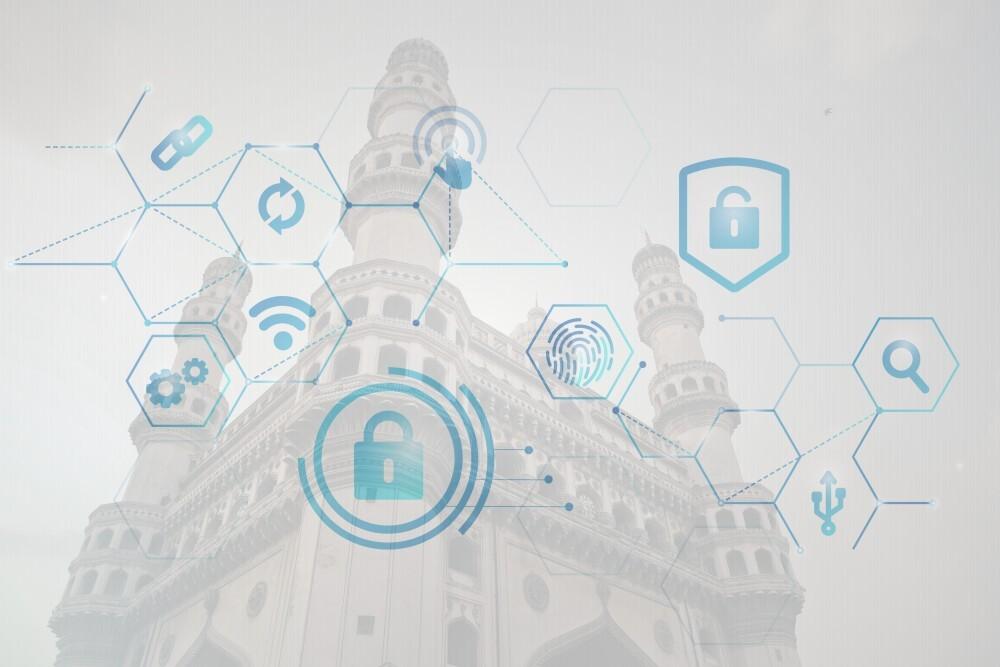
Digital proliferation is inevitable in today's world that is witnessing COVID-19 disruptions and the rapid advancement of new technologies. According to Statista.com, there would be over 650 million internet users in India by the next year. With increasing internet usage, there is an increase in the levels of connectivity, remote working, automation, and digital reliance. Such a hyper-connected digital environment is vulnerable to cybercrimes and threats.
Though technology is a silver lining during the pandemic, there has been a significant rise in the no. of cybercrimes incidents across the country. Cyber-attacks can erode a company's reputation, customer's trust, and lead to massive monetary and productivity losses. Thus, cybersecurity and cyber risk have become a critical focus of organisations and small businesses globally.
On the other hand, the increase in the occurrences of cybersecurity crimes is fuelling the acceleration of the cybersecurity industry. There is a roaring demand for highly skilled cybersecurity and privacy professionals globally. Organisations and businesses have realised the importance & the need of building a strong privacy culture and cybersecurity frameworks to ensure the safety of their internal as well as external data, and are looking to recruit candidates with privacy knowledge, understanding & skills.
The emerging cybersecurity talent shortfall poses a critical challenge to scale innovations, recruitments & protection in the cybersecurity ecosystem. According to TeamLease Services, India is expected to have over 1.5 million unfulfilled job vacancies in cybersecurity by 2025.
How to fill the cybersecurity skill gap? Enabling skilling and upskilling among employees, students and professionals is a crucial step to bridge the gap.
"The job of reskilling lies with the individual, where they realise the skill, they should focus on to be relevant in the current work ecosystem"- Mr Shiv Shivakumar, Group Executive President, Corporate Strategy & Business Development at Aditya Birla Group during NASSCOM Technology and Leadership Forum 2021
To leverage the endless opportunities in the cybersecurity domain, job seekers, professionals and students need to be aware of the latest developments in the industry and must acquire top skills to be a part of the workforce of the future.
Here are the Top 5 Industry-Relevant Cybersecurity Skills to Learn in 2022
- Penetration Testing
Learning penetration testing offers a plethora of career opportunities. Acquiring penetration testing skills offers many benefits like discovering vulnerabilities in the network, preventing data loss, and avoiding malicious attacks. Organisations hire penetration testers or pen testers to legally hack into systems and reveal exploitable vulnerabilities that threaten business operations. A skilled penetration tester today is one of the most highly sought-after professionals in digital security.
- Cloud Security
There is a huge demand for cloud security skills as most organisations and businesses are adopting the cloud. Building cloud security skills enhances the capability to innovate and understand the latest security best practices.
- Cyber Threat Intelligence
Cyber threat intelligence is an important skill that helps analysts protect computer systems and networks by collecting information and analysing intelligence.
This skill equips cybersecurity & privacy professionals with the ability to mitigate and reduce risks.
- Application Development Security
Application development security is one of the most in-demand skills as applications are heavily used and available on many networks. Professionals with application security skills can identify threats and avoid risks during the application development stage. Detecting and preventing threats in the developmental stages improves the security framework of the apps.
- Risk Management
Cybersecurity risk management is essential to detect potential threats and risks on an operational level. More and more organisations are recruiting professionals with risk management skills due to increasing cyber-attacks. Risk management is beneficial to establish and implement efficient security, privacy strategies and organisational policies that mitigate risks.
Along with the above-mentioned skills, cybersecurity professionals also need strong interpersonal and communication skills. Problem-solving is a crucial skill to learn as it will help to address day to day challenges in the domain. It's needed to solve emerging concerns with creative approaches. Cybersecurity professionals work closely with experts from other departments and roles; therefore, it is necessary to learn effective communication skills. It's important to express concisely on cybersecurity strategy and policy and explain technical information to the co-workers, seniors & C-suite leaders.
The cybersecurity landscape is everchanging and the industry is ever-growing. It is a great time for security and privacy enthusiasts to make the most of the emerging opportunities and contribute to the safeguarding of valuable data, digital assets and information of the public, organisations and government. Learning, relearning, skilling & reskilling initiatives need to be boosted to bridge the skill gap.
References:
https://www.naukri.com/learning/articles/most-in-demand-cybersecurity-skills-to-learn/
https://resources.infosecinstitute.com/topic/most-valuable-cybersecurity-skills-to-learn-in-2022/





